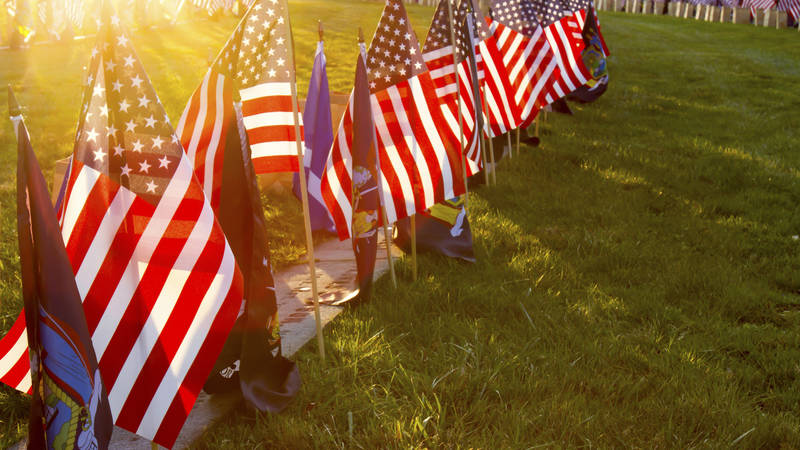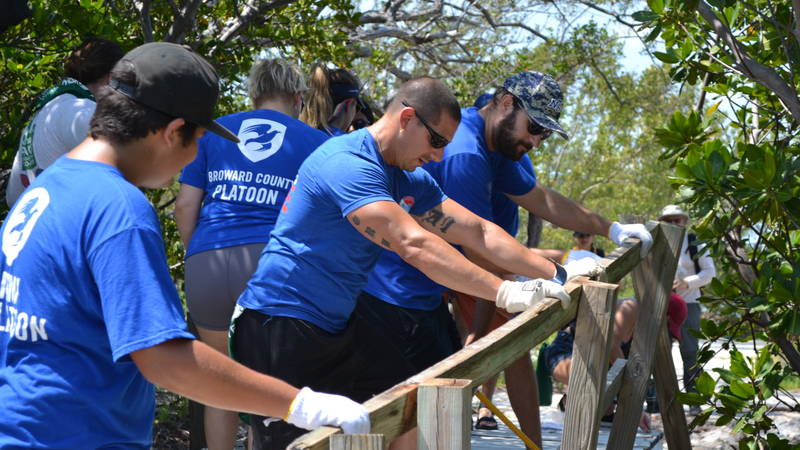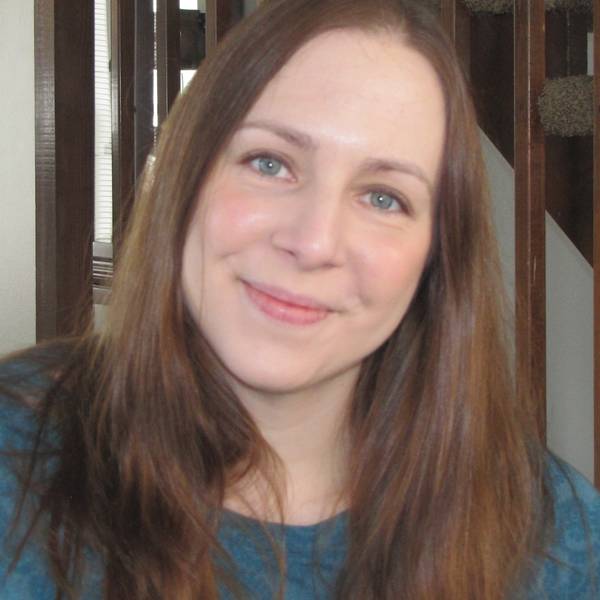How a Gold Star Family member honors the vets around her — and finds solace in the public lands dedicated to them.
I was born on Memorial Day, but it would take me 25 years to fully comprehend why this federal holiday exists.
I come from a family that celebrates its military history. My father was born to Albanian immigrants in Detroit, Michigan, and considered his service a gesture of gratitude for his country’s acceptance of him. He also considered it a form of besa — in our culture, a strong oath of honor. He was a proud Marine, and growing up, I would see the eagle, globe and anchor symbolizing the Corps on various objects throughout the house. By the time my only brother, Nicholas Oresti Cherava, enlisted, my father had passed, but his commitment to sacrifice, selflessness and camaraderie still echoed. Nicholas ultimately chose to be stationed at the same bases where our father served, following in his footsteps.
Memorial Day has always been significant to my family as a time to honor the fallen and to remember everyone who has passed in our lives. But it’s a summer phone call and a terrible day in October that I think about most when I think of the meaning of service and sacrifice.
I was living in Washington, DC, in 2005 as an intern for NPCA, and on a hot and humid late summer weekend, I attended a Greek festival in Northern Virginia. I had promised my brother I would call him that day, and he was on my mind. After enjoying the food and music, I stopped at the Orthodox Church to light a candle in memory of my father and to pray for Nicholas, who was about to be deployed for the second time to Iraq.

Finding Patriotism in National Parks
A veteran shares his ideals with his daughters through his love of public lands
See more ›The church was empty except for a few staff who were receiving and preparing to store a relic of the Patron Saint Barbara, who is known for protecting members of the infantry, as well as people in other occupations — especially those facing danger and sudden death. When I told the priest why I was there, he beamed and offered the cloth holding the relic for me to touch. Then, he said a prayer.
On this day, it felt like a sign — the affirmation I sought that my little brother was going to be OK.
After leaving the church, I visited Arlington Cemetery, where I walked a trail to the U.S. Marine Corps War Memorial, a national park site dedicated, according to its website, to “the Marine dead of all wars and their comrades of other services who fell fighting beside them.” It includes the names and locations of every war and military conflict where the Marine Corps has served, and although my generation was not yet listed, years later, Iraq and Afghanistan would be added.

Working with Veterans to Protect National Parks
NPCA’s veterans program meaningfully engages the military community — including veterans, active duty, reservists and military families — to support national parks through service projects and advocacy.
See more ›It’s there that I called Nicholas. I was ecstatic when he answered, and I went on and on about what had just happened, describing the church and how I had arrived at just the right time to commune with the patron saint who would watch after him. Nicholas had been named after an Orthodox church in Detroit that my dad attended when he was younger, and it all made sense to me. “You will be kept safe,” I told him enthusiastically.
As I tried to catch my breath, all I heard on the other end was silence. “Yeah,” he said finally.
I changed the subject and told him about how I had waited to call him until I arrived at the memorial because it was such an iconic symbol of the U.S. Marine Corps. I read some of the inscriptions aloud to him as I walked around the sculpture, which depicts a famous Pulitzer Prize-winning photo from World War II of six Marines raising the American flag in Iwo Jima, Japan. We shared updates of our lives while I stood next to the statue, and we agreed that when he returned, he would drive up to DC, and we would see the memorial together. But that day was the last time I would ever hear his voice.
On October 6, Nicholas and three other Marines were killed by a roadside bomb. He was 21 years old. Before his deployment, my brother had chosen, in his required planning documents, to be buried in our hometown in Michigan. Though he was laid to rest far from where I lived, the memorial remained a sacred place where I could go when I wanted to remember and feel close to him. Being part of a Gold Star Family — those who lose an immediate family member to war — made my connection to it feel even more intense.
I remained in DC for several more years and visited the site many times, on my own, with my sister, and even once with a young man who had served with my brother and was with him that fateful day. This memorial and others like it offer more comfort than many people may realize. For me, it offered solace and a sense of continuity. When I couldn’t visit my brother’s gravesite, this was the next best thing.
Stay On Top of News
Our email newsletter shares the latest on parks.
Places like this one don’t just tell the stories of the past — they become a significant way for visitors to connect their memories to the present. Before moving to Colorado at the end of 2011, I would return to the Marine Corps Memorial every October 6 with flowers and a penny in memory of Nicholas. These offerings joined other tokens of remembrance with immeasurable significance. I would sit for a moment or two, and in my heart, I knew he knew I was there.
National parks were important to me growing up, and I have many fond memories spending time on camping trips with my family. But I never needed a place emotionally the way I once relied on this memorial. This site was an important part of my healing process, and I am grateful that it is managed by the National Park Service so that people can continue to find this same comfort.
I know whenever I return to DC, it will continue to be there for me, and I can stand at its marble base and say quietly, as I always do: “Semper Fi.”
About the author
-
 Christa Cherava Senior Manager of Conservation Programs
Christa Cherava Senior Manager of Conservation ProgramsChrista joined NPCA as a Government Affairs Department intern to gain exposure to natural resource policy. Today she is part of the Conservation Programs Department where she focuses on water issues—including coastal resiliency, sustainability, and also supports their Science Team.
-
General
-
- NPCA Region:
- Mid-Atlantic
-
Issues


